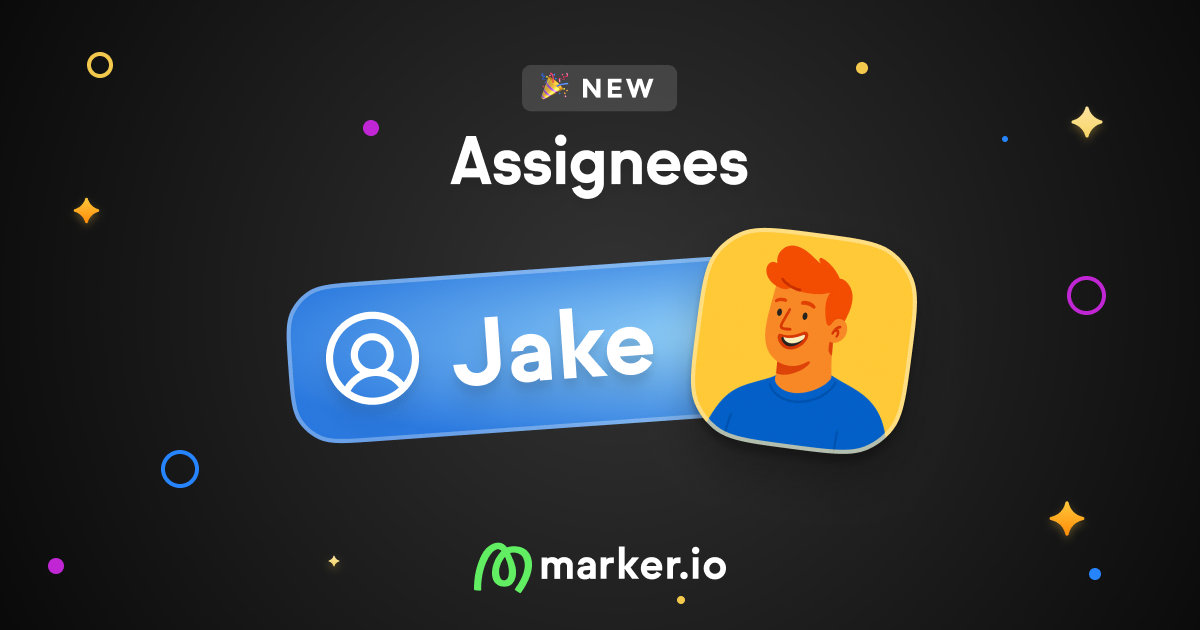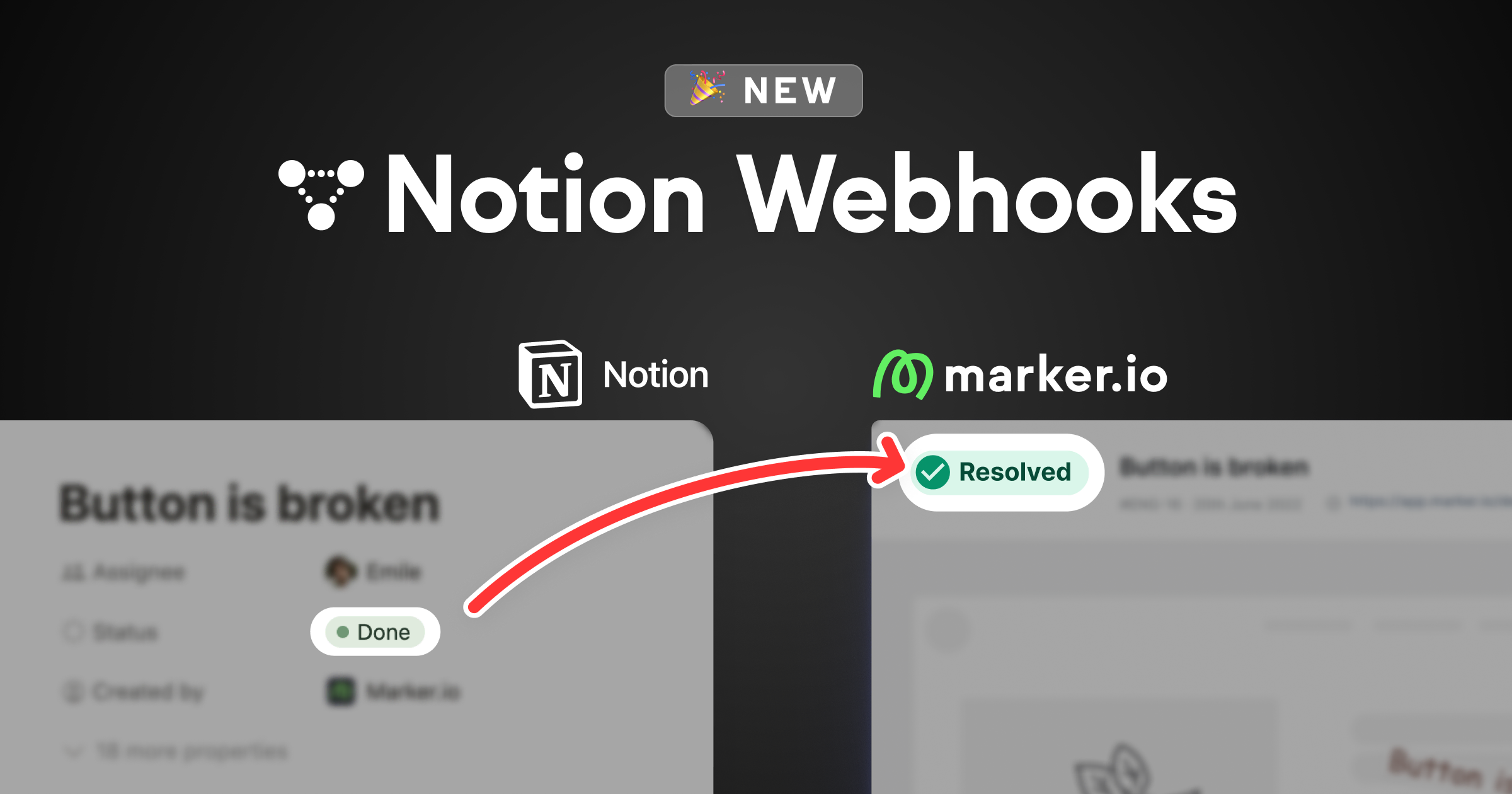21 Best Software Testing Tools in 2023: Comparison Guide
In this post, we will compare and contrast the 21 best software testing tools based on features, use cases, and pricing.
In this post, we will compare and contrast the 21 best software testing tools based on features, use cases, and pricing.
Software testing is integral to ensuring any new software product or platform can go live.
But when your team is developing software applications for dozens or hundreds of clients, QA testing gets time-consuming and complicated.
Project managers, product managers, and QA leads need the best software testing tools to make this work easier, quicker, and more effective.
You need to make sure that every software product you sign-off works in the wild with as few problems and bugs as possible.
Software testing tools simplify this process, reducing the workload on your team.
With the right functional testing tools, you can:
- Identify and fix bugs (after all, the #1 job for QA teams!);
- Test performance, load speeds, security, and API integrations;
- Test websites, apps, and software across hundreds of browsers, devices, and operating systems;
- Improve your user experience and user interface;
- …and so much more!
Tools vary in functionality, features, and testing frameworks, but you might be interested in one of more of the following methodologies:
- Manual testing
- Regression testing
- Performance testing
- Integration testing
- Continuous testing
- Cross-browser testing
- Data-driven testing
- Security testing
- Exploratory testing
- …the list is endless!
Whatever type of test coverage you need, we’ve tried to be as complete as possible—so your quality assurance team can find something that works for them.
Let’s dive in with a comparison of the 21 best software testing tools.
21 Best Software Testing Tools
Here’s our list of the best software testing tools out there—ideal for software development teams, test management, and more.
We have broken this list down by use case:
- Bug tracking tools
- Automated testing tools
- Test management tools
- Performance testing tools
- Cross-browser testing tools
1. Marker.io
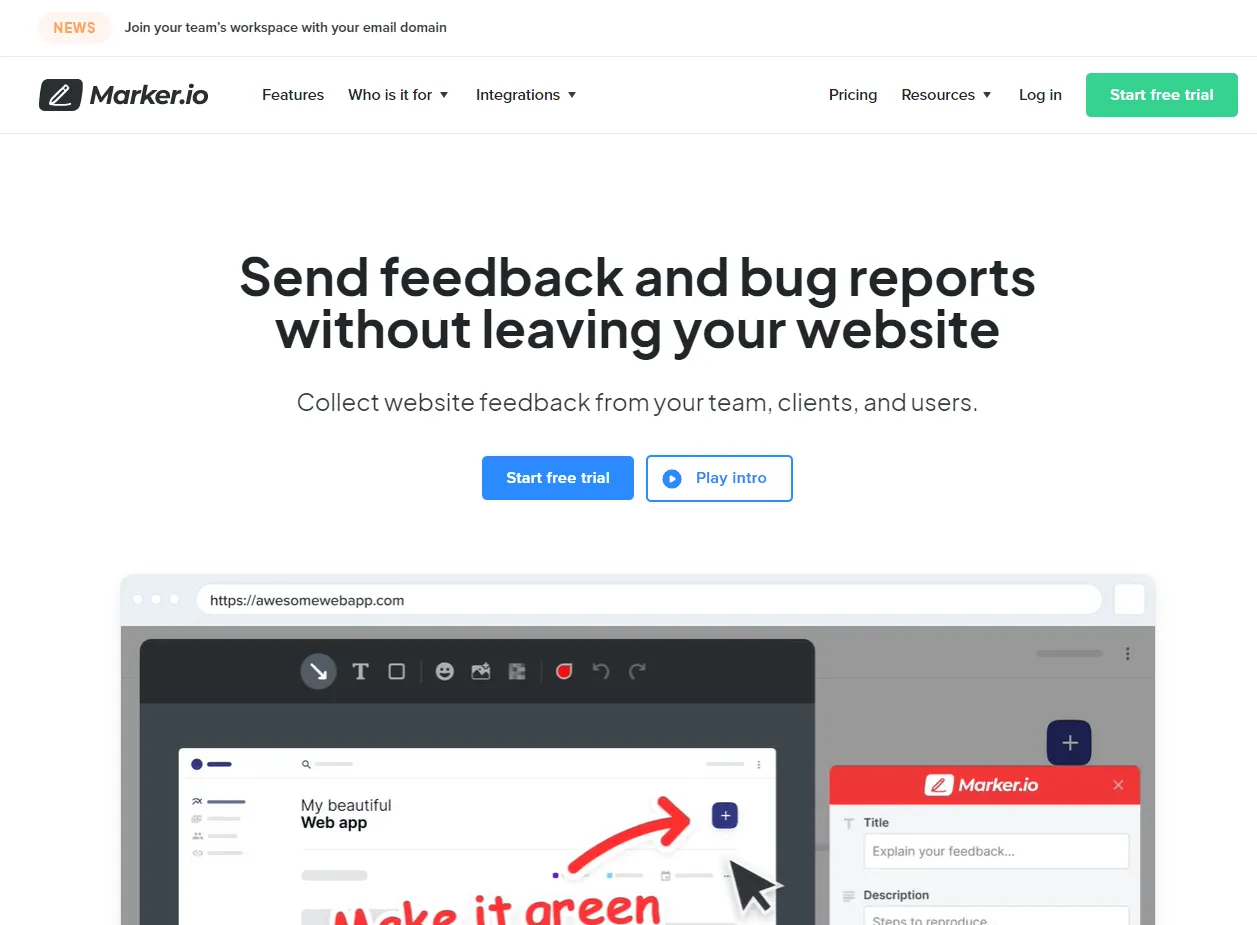
A powerful software testing tool—complete with data-rich bug reports, annotations, and session replay.
Great software testing tools need the following features:
- A simple “one-click” system to capture feedback during testing on development and live versions of new software;
- Automatic environment log capture (device, browser, OS);
- Screenshots and visual annotations from QA teams, clients, colleagues, and stakeholders, so that developers can action testing results quickly;
- Automatically replaying the last 30 seconds before feedback or bug report were submitted;
- Deep 2-way integration with any of the project management tools that your development team already uses (Jira, GitHub, Trello, Azure DevOps, and dozens of others …)
The good news is, Marker.io does all of this, and is the best software testing and QA tool to collect everything you need.
Pricing: starts at $39/mo.
Data-rich bug reports
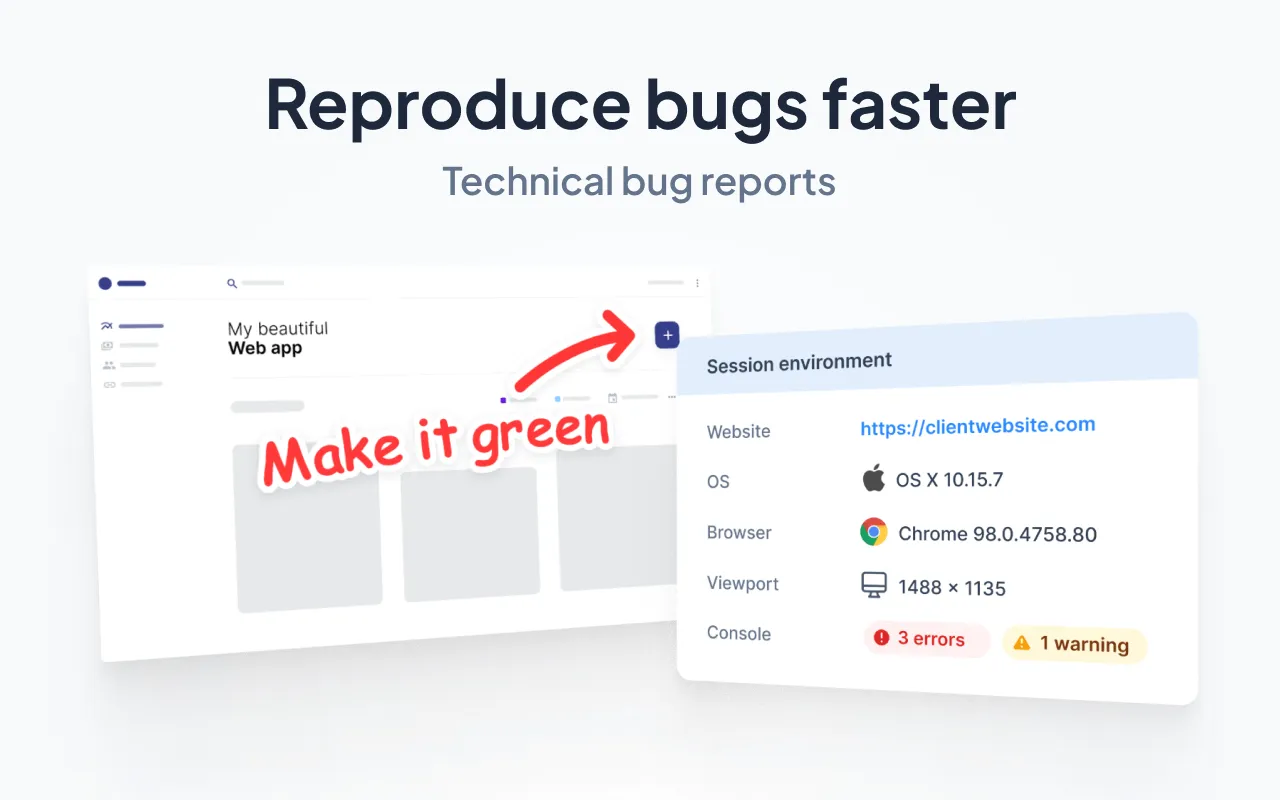
What do software and QA testing engineers need more than anything when trying to identify and fix bugs in software or a web application?
Accurate information about the bug so that they can replicate it and then fix it!
Without this data, QA engineers can be shooting in the dark with a blindfold on. A bug might show up on one OS and device, but not another.
With Marker.io, every piece of technical data your devs need is automatically captured with every bug report and sent directly to your PM tool in real-time.
The following info is included with every report:
- Comprehensive environment information (browser, OS, device, etc.);
- Screenshot with annotations;
- Metadata and console logs;
- The specific page within the software/app when the bug was spotted;
- Automatic session replay, so you can see what was happening when the error occurred.
2-way sync with project management tools
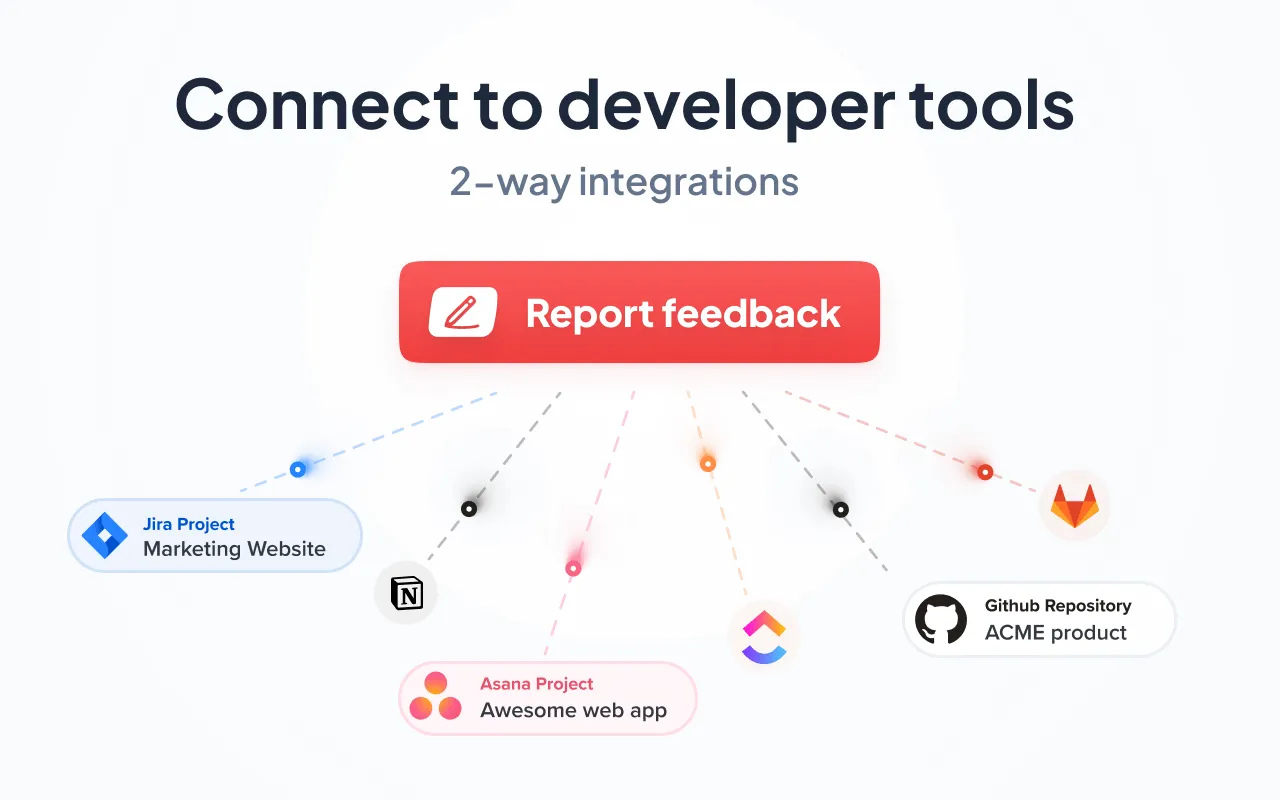
QA and software testing is time-consuming.
As a project manager, the last thing you need is to spend more time jumping between a testing tool and your PM.
To save time, you need everything in one place, your team’s project management tool.
With Marker.io, everything you need goes straight into your PM tool of choice.
Even when it’s feedback from clients or end-users, as Marker.io has simple online forms that users can submit feedback and bug reports through, too.
You can rest easy knowing that you won’t be scrambling to pull together feedback from email, Slack channels, and notes after video calls.
Marker’s 2-way sync is automatic and takes a few clicks to set up via a Javascript snippet.
Deep integrations mean that as soon as an issue is marked as “Done” in your PM tool, it’s also “Resolved” in Marker.io.
Client’s and other stakeholders can even be automatically notified.
Check out our 2-way sync in action:
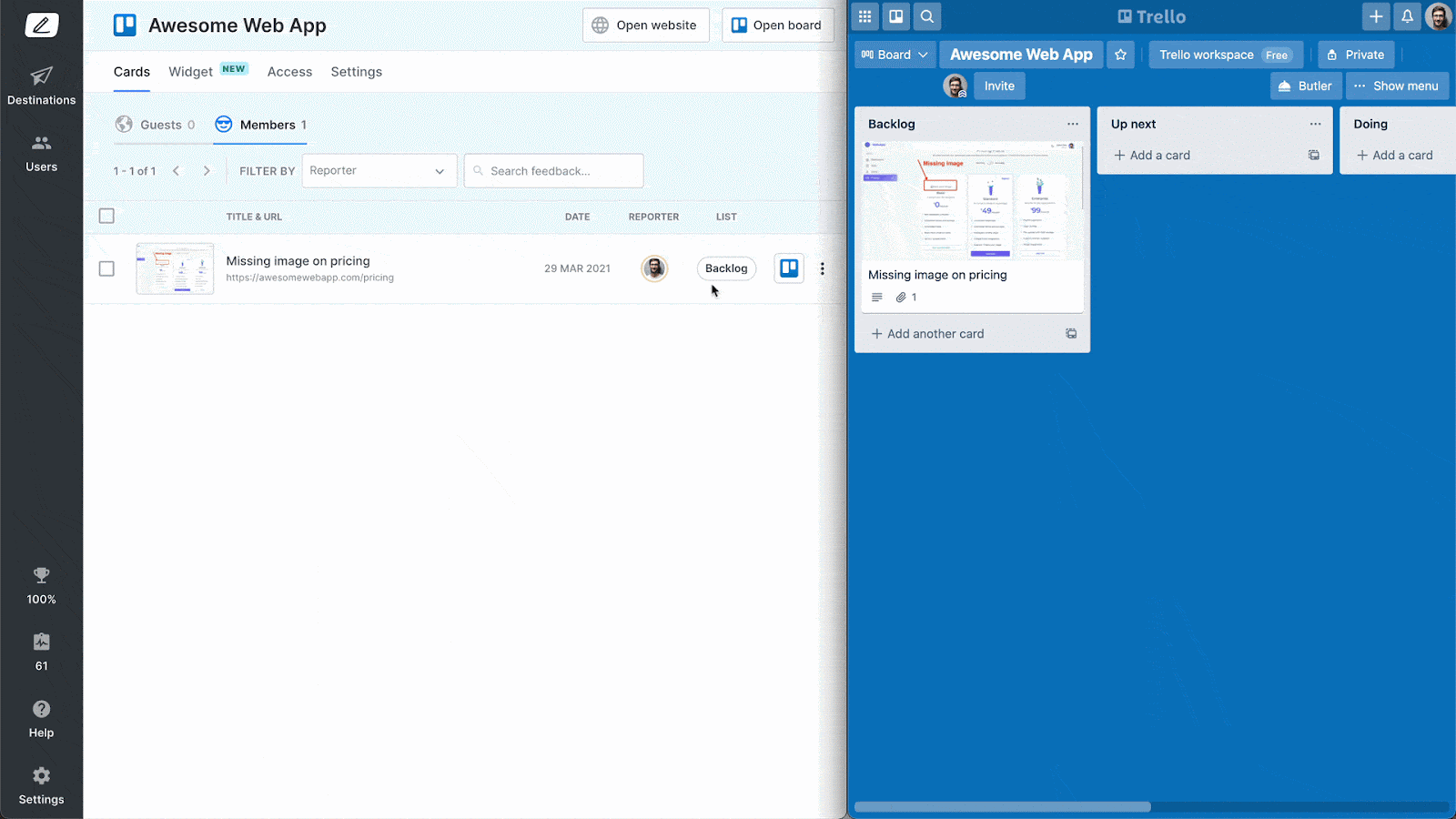
Session Replay: making it even easier to action testing feedback

Session replay provides a playback of your software testers reporting feedback—time-traveling the last 30 seconds before a bug was submitted.
This is especially useful when you do software testing with beta testers or non-tech-savvy stakeholders. It’s often difficult to replicate the exact environment where a bug or UX issue occurred.
The good news is, Marker.io's feature stack includes session replay for that reason.
All your QA team needs to do is click the “Watch replay” button on your feedback page. You can do this within any PM tool, thanks to Marker.io’s 2-way integrations.
Here’s Session Replay in action:
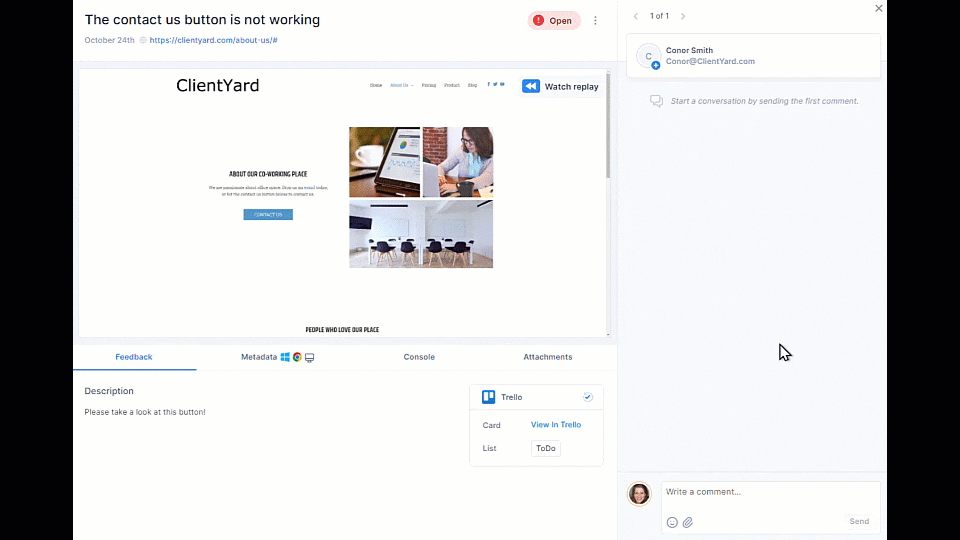
Capture visual feedback during software testing
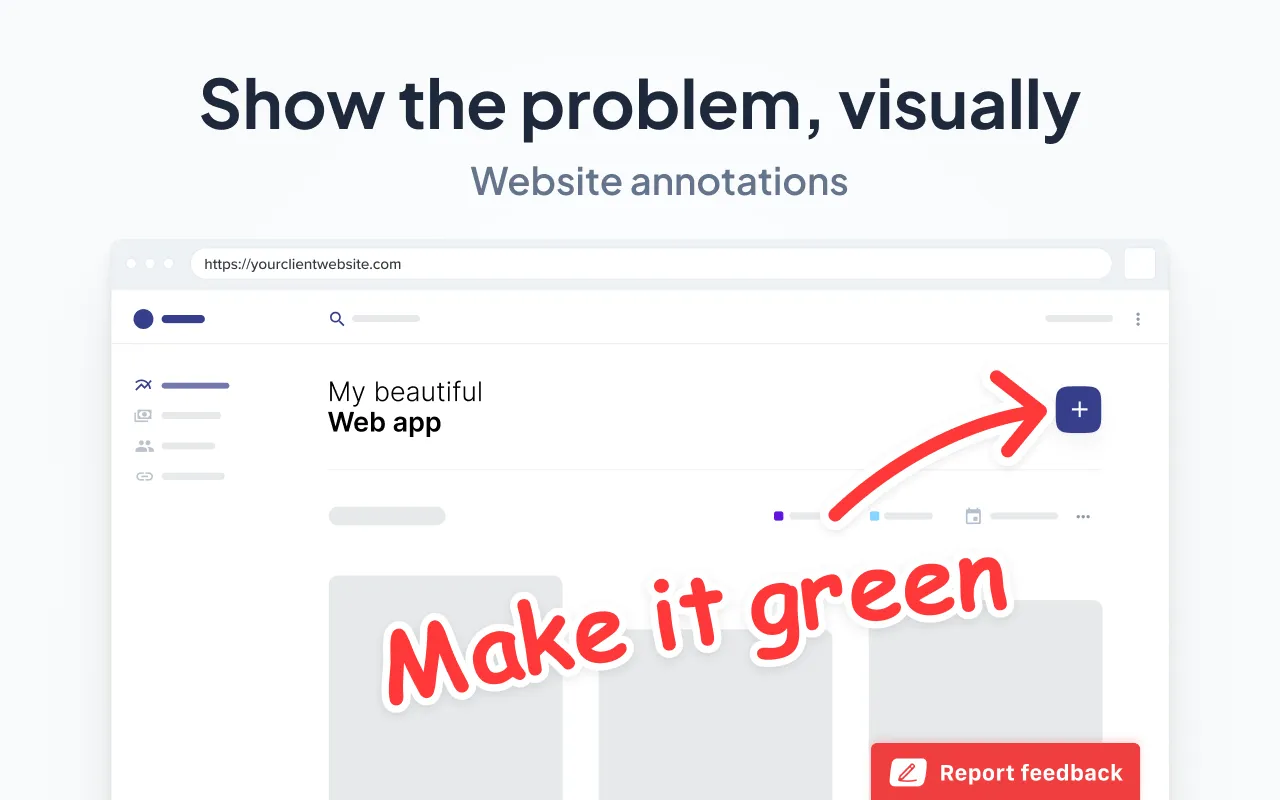
Feedback and bug reports are more actionable when there’s a visual element.
With Marker.io, that’s a simple, 3-steps process:
1. Find a bug or something that needs changing, and click the button.
2. Fill out a report and input details (it automatically captures environment info).
3. Click on “Create issue”—and the report is sent to your PM tool.
It’s as easy as: spot a bug, click, annotate, and send!
Check it out:
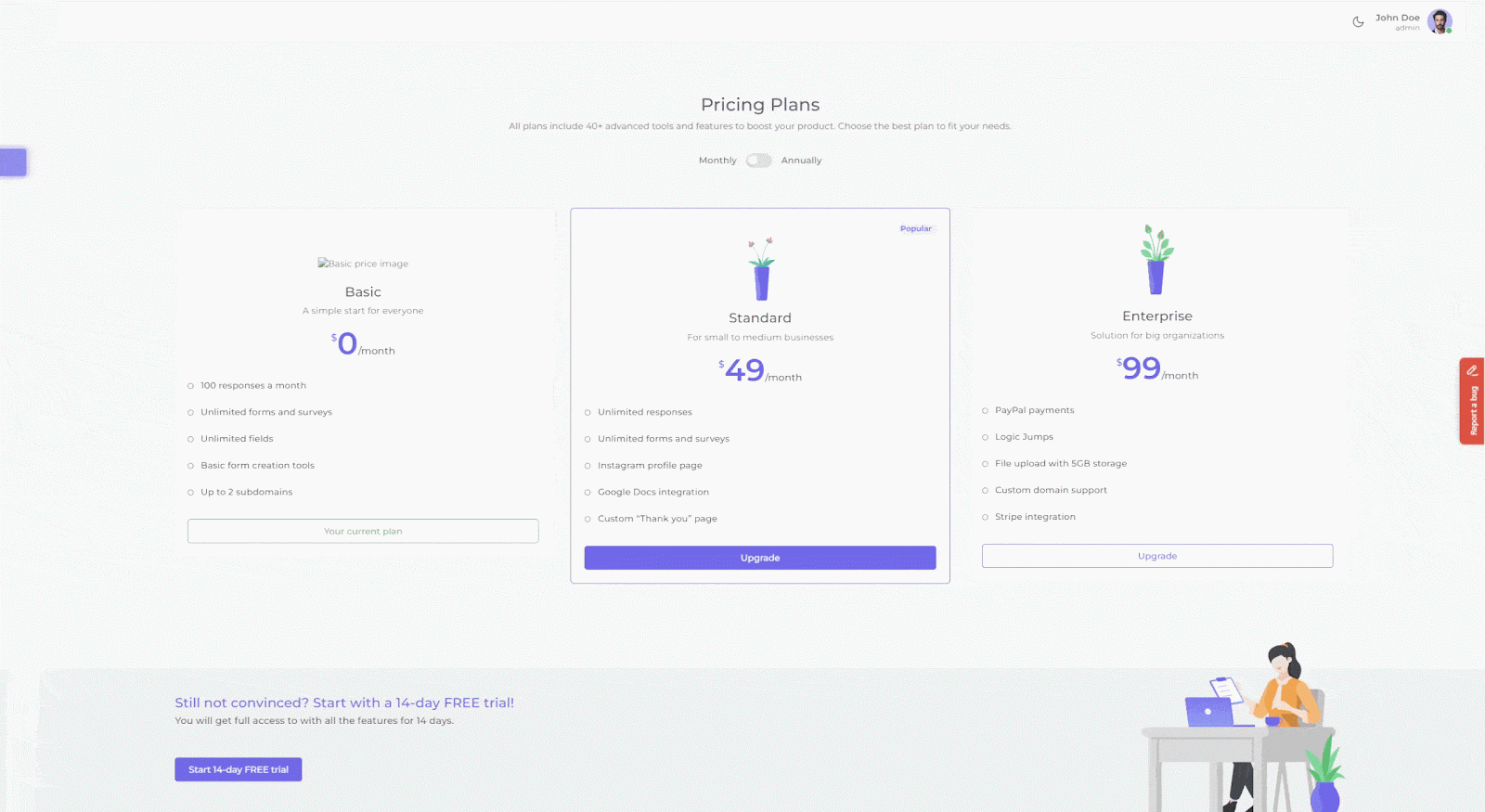
Sounds too good to be true? Try Marker.io free for 15 days, add it to your dev agency workflow, and let us know what you think!
Pricing: starts at $39/mo.
2. Jira

A popular PM suite for software testing.
Jira is a market-leading PM tool, especially amongst agile dev teams and agencies. With Jira, you can:
- Collect and organize product feedback, testing feedback, and bug reports;
- Manage your projects and feedback in one app with advanced, custom workflows;
- Leverage an extensive range of agile PM features, tools, automation frameworks, and integrations.
Pricing: $0 (10 users), up to $15.25/mo per user after that, with custom Enterprise options.
3. ClickUp

A multi-feature PM tool that’s popular with thousands of dev agencies.
ClickUp includes the following suite of tools:
- Everything you need from a PM tool: tasks and subtasks, bug tracking, and dozens of plugins and integrations;
- Software documentation capture, in-app analytic and project metrics;
- A small range of basic software testing tools.
Pricing: from Free (for personal use), up to $29/mo per user.
4. Trello

A market-leading project management tool that can also be used for bug tracking.
Next on our list of software testing tools is Trello.
- Trello uses the Kanban-style task board to organize projects;
- You can use templates to organize software testing issues according to your team’s or the client’s order of priority;
- Integrate Trello with Marker.io to keep software testing, bug reports, task management, issue resolution, and notifying clients and stakeholders automatically in Trello.
Pricing: Starts with a Free plan, and goes from $6.00 per user/mo up to $12.50 per user/mo, with an Enterprise option for larger teams.
5. Bugzilla

Bug tracking and software testing, rolled into one neat package.
Bugzilla is an open-source tool for software development and QA testing. It includes:
- Bug reporting and tracking;
- A tool to categorize and track the issues based on products and components;
- A milestone, release update, and limited product roadmap feature.
Pricing: Free (Open-source)
6. Selenium

Open-source automated testing tool for browsers.
Selenium includes three core products:
- WebDriver. Regression automation test suite on interactive, real browsers;
- Selenium IDE. Bug reproduction and test scripts in Python for Chrome, Firefox and Edge;
- Selenium Grid. Scripts for running tests automatically across dozens of browsers and operating systems.
Pricing: Free (open-source)
7. testRigor

AI-based software test automation platform.
testRigor is a near codeless test automation tool. It includes:
- The ability for QA engineers to create tests in plain English (write tests in words, not code);
- Automated testing “emulates the way humans interact with web apps or mobile apps.”
- Far less test maintenance, so engineers can focus on QA.
Pricing: free, as they have an open-source version; or from $900/mo for private test suites, with a 14-day free trial.
8. LambdaTest

Powerful cross-browser testing tool for software engineers and QA teams.
LambdaTest is a cross-browser testing platform used by over 1 million developers. It includes:
- Automated software and app testing across 3000+ environments and various web browsers;
- Hyper-fast testing execution;
- Plentiful of testing activities: live testing, mobile QA testing, testing at scale, and loads more!
Pricing: From $19/mo for Live (1 parallel test) or $35/mo for Real Device (1 parallel test). Pricing increases based on the number of parallel tests you need to run.
9. TestComplete

Automated, AI-powered testing platform for UI testing.
TestComplete is a SmartBear software testing product. It includes:
- UI testing solution for web, mobile, and desktop functional testing;
- Automated UI testing within a cloud environment;
- AI-powered object detection and GUI testing.
Pricing: From around $2000/year.
10. Sahi

A faster testing platform for dev and QA teams that don’t want to spend loads of time testing software.
Sahi Pro is a low-code automated software testing platform. It promises:
- Software releases 2x faster than other QA testing tools;
- Automated functional testing and application testing solutions;
- Complex test automation sequences that are faster to implement than simpler ones.
Pricing: $695 per user/year, or $995/year for a concurrent license, with 2 Free licenses included.
11. Xray

Native test management tool.
XRay is a native test management suite of tools that includes:
- Complete control of the entire process for QA leaders;
- Detailed traceability reports;
- Tools to improve collaboration with development teams.
Pricing: No pricing available online; you would need to contact them for a quote and free trial.
12. Zephyr

Automated end-to-end test management with PM integrations.
Zephyr is another SmartBear product, providing end-to-end automated test management. It includes:
- A wide range of collaboration tools, including deep integrations with Jira and other Atlassian PM products;
- Automation and integration with BDD and CI tools;
- Advanced test repository, planning, and reusable at-scale features.
Pricing: From $52.28/mo per user.
13. TestMo

Modern, unified, automated test management in one place.
TestMo is a powerful unified test management suite. It includes:
- A way for QA leads to manage every test case in one place;
- Oversee sessions and automation testing;
- Integrations with dozens of PM tools, such as Jira, GitHub, GitLab, and many more.
Pricing: From $99/mo (10 users), up to $499/mo for 100 users (Enterprise, with add-on options).
14. Tuskr

All-in-one test management software solution.
Tuskr is:
- An all-in-one test management suite with a simple UI;
- It includes automated testing features;
- Numerous ways to customize tests, and lots more!
Pricing: From Free (up to 5 users), and then premium pricing from $9 per user/mo (6+ users: minimum of $54/mo).
15. PractiTest

Another test management platform to manage all of your QA testing in one place.
PractiTest is a solution to orchestrate QA and software testing. With it, you can:
- Improve team communication;
- Have an overview of your entire QA testing environments;
- Integrate it with other tools and software, such as PM suites.
Pricing: From $39 per user/mo.
16. WebLOAD

A powerful suite of tools for load testing.
WebLOAD, a RadView product, is a load testing software suite for QA teams. You can:
- Produce a massive, virtual, cloud-based user load;
- See how your software performs under extreme load conditions;
- Use the Recorder tool that deploys correlation, parameterization, response validation, messaging, native JavaScripting, and debugging.
Pricing: A 30-day free trial is available once you’ve got a quote.
17. Loadfocus

User load testing suite.
With Loadfocus, you can:
- Implement cloud-testing for software and APIs;
- Test the loading speed of individual pages;
- Test mobile applications;
- …and loads more!
Pricing: From $130/mo (basic plan).
18. ReadyAPI

Premium API testing for QA teams.
ReadyAPI is another Smartbear product that provides functional testing for APIs and API integration with software. It includes:
- A low-code testing platform and environment;
- Automatic API testing across hundreds of environments;
- ReadyAPI is the premium API testing equivalent of Soap UI Open Source.
Pricing: From around $8000/year.
19. BrowserStack

Test your software across over 3000 devices and platforms at the same time.
BrowserStack is the go-to for cross-platform test execution. It includes:
- Automatic testing on over 3000 devices, platforms, and environments;
- Testing tools used by over 50,000 teams worldwide;
- Out-of-the-box setup with a highly-secure testing environment for QA teams.
Pricing: From $39/mo on a single-user plan.
20. Browsera

An automated cross-browser testing platform for software QA teams.
With Browsera, you can:
- Test a website or software on dozens of browsers;
- Test the pages behind your login screen, so you fully understand the user experience;
- Evaluate the compatibility of your software across different browsers and environments.
Pricing: No pricing as new sign-ups are currently disabled.
21. SauceLabs

A powerful way to test across hundreds of devices and environments.
With SauceLabs, you can:
- Implement cross-browser testing;
- Run low-code automated tests;
- Mobile beta testing, and lots more!
Pricing: From $49/mo.
Frequently Asked Questions
What are software testing tools?
Under the term “software testing” are dozens of different ways to assess whether a new software product or platform is working as intended, such as:
- Bug tracking, testing, and fixing;
- Automated testing across multiple devices, browsers, and operating systems;
- Test management solutions (useful when running hundreds of tests simultaneously);
- Performance testing;
- Cross-browser testing;
- And so much more!
The idea behind software testing, in whatever form it takes for your agency, is to implement a “black box” approach to verify that software, a website, or app works as expected.
This means, without bugs, slow load speeds hindering performance, and other commonly occurring problems.
Why do I need a software testing tool?
When testing is implemented, you can fix any of the problems mentioned above.
Every agency needs to have tools to test the software they’re developing for clients.
Otherwise, even with the best engineers in the world, bugs would get missed all of the time, and clients would be unhappy.
And that about wraps up our list of the 21 best software testing tools!
We hope this post helped you decide on a tool that’s right for you.
Did we miss anything? Let us know on Twitter or via e-mail!
What should I do now?
Here are three ways you can continue your journey towards delivering bug-free websites:
Check out Marker.io and its features in action.
Read Next-Gen QA: How Companies Can Save Up To $125,000 A Year by adopting better bug reporting and resolution practices (no e-mail required).
Follow us on LinkedIn, YouTube, and X (Twitter) for bite-sized insights on all things QA testing, software development, bug resolution, and more.
Frequently Asked Questions
What is Marker.io?
Who is Marker.io for?
It’s perfect for agencies and software development teams who need to collect client and internal feedback during development, or user feedback on live websites.
How easy is it to set up?
Embed a few lines of code on your website and start collecting client feedback with screenshots, annotations & advanced technical meta-data! We also have a no-code WordPress plugin and a browser extension.
Will Marker.io slow down my website?
No, it won't.
The Marker.io script is engineered to run entirely in the background and should never cause your site to perform slowly.
Do clients need an account to send feedback?
No, anyone can submit feedback and send comments without an account.
How much does it cost?
Plans start as low as $49/mo per month. Each plan comes with a 15-day free trial. For more information, check out the pricing page.
Get started now
Free 15-day trial • No credit card required • Cancel anytime



